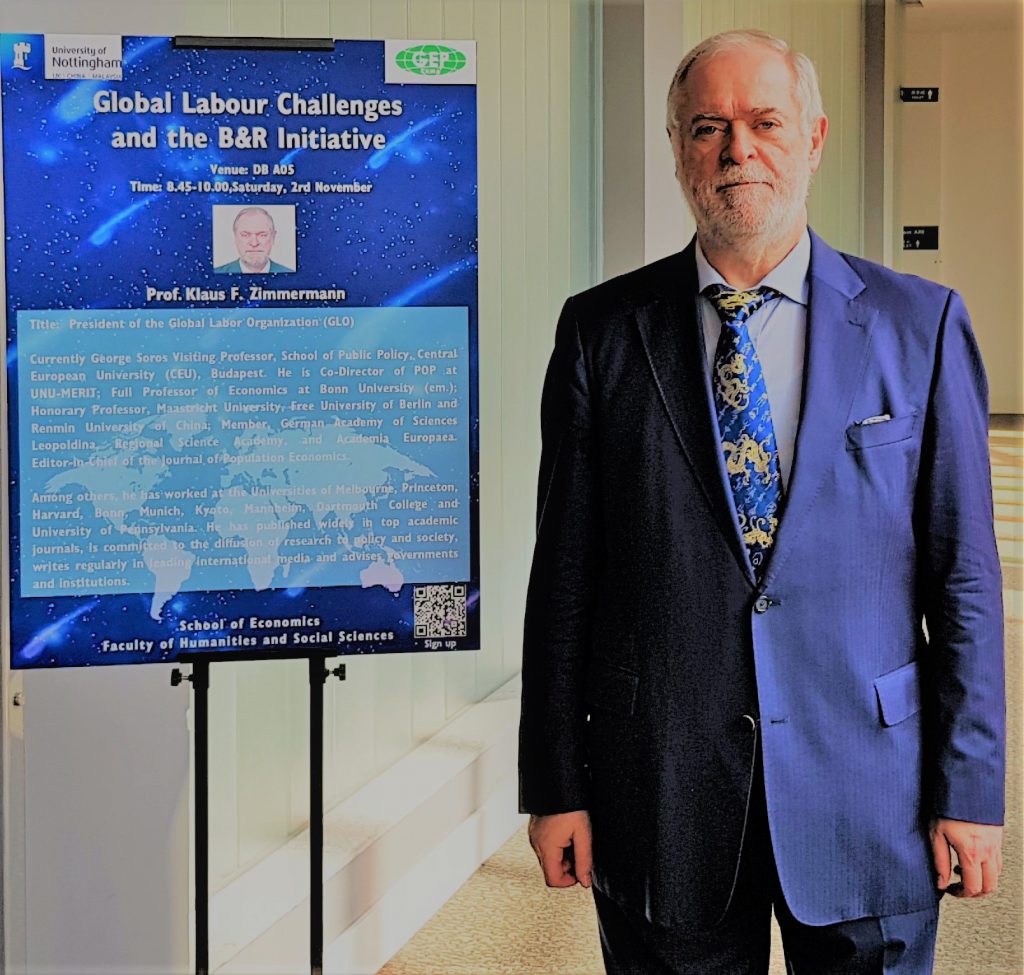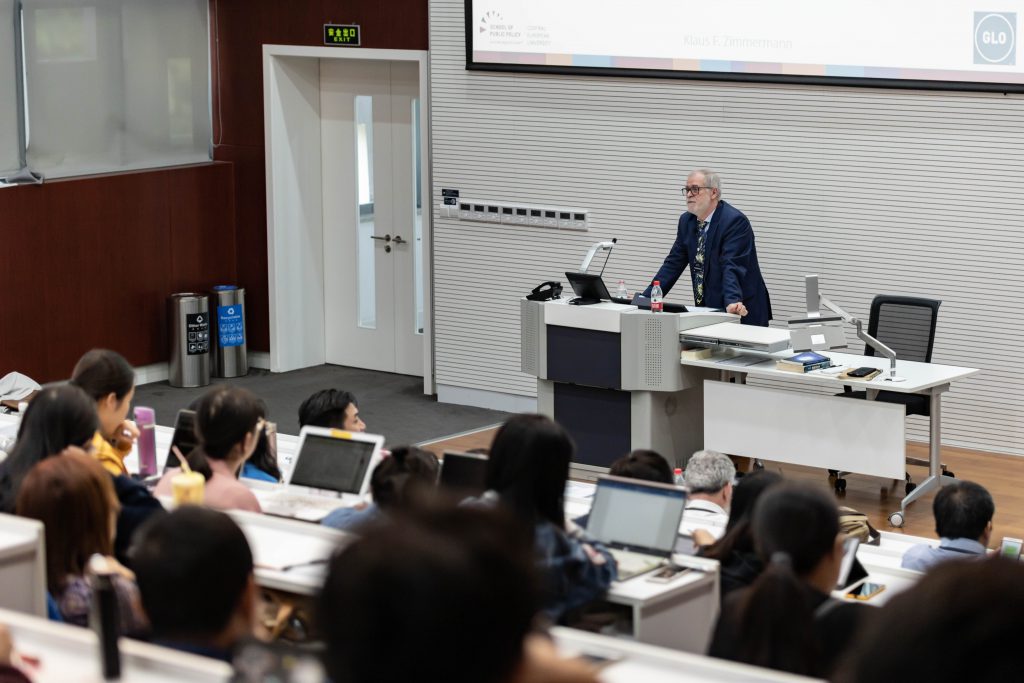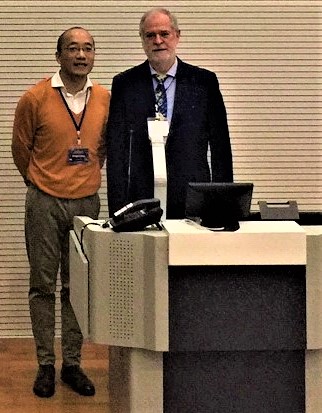On October 31, 2019 GLO President Zimmermann arrived in Ningbo after his visit at Lexin University in Shanghai. At the University of Nottingham Ningbo/China, Globalisation and Economic Policy Centre (GEP), he participated on November 1-2 at the 11th GEP China Conference: “Globalisation with Chinese Characteristics: The Belt and Road Initiative, International Trade and FDI”. He investigated the upcoming B&R research presented at the meeting, followed on November 1 the “World Economy China Lecture” of Justin Yifu Lin (Peking University) on “The Rise of China and the Belt and Road Initiative” and gave on November 2 his own “Distinguished GEP China Lecture” on “Global Labor Challenges and the B&R Initiative”. GLO Fellow Minghai Zhou of the University of Nottingham Ningbo had introduced Zimmermann and chaired his lecture and the following intensive discussions. Zimmermann also gave a longer interview to a team of student journalists from the Ningbo Economic Review. Full Conference Program. More details and pictures on the Ningbo visit see Report 1 and Report 2.
As Zimmermann outlined in his keynote, the globalization of work is a necessary process in the evolution of human specialization of work to improve efficiency and to increase welfare. In the face of adjustment costs during transition and development, societies may ignore this for some time, but this comes with welfare losses. The keynote lecture discussed the role of global labor in the context of the great human challenges of our time: demography, urbanization, the technological revolutions at the work place, climate change, migration, and populism. The lecture contributed to the understanding of these challenges, and how global labor can foster welfare. While the benefits of labor mobility are more and more debated around the globe, in particular in the United States, Europe, and Australia, the Asian and African nations follow a different approach. China is the most mobile nation of the globe. Through its internal migration and the B&R initiative it strongly contributes to general welfare. But China needs to observe the global labor challenges, in particular the aging issue and the international migration pressures to be able to act properly. It has security issues as well as it needs food and natural resources.
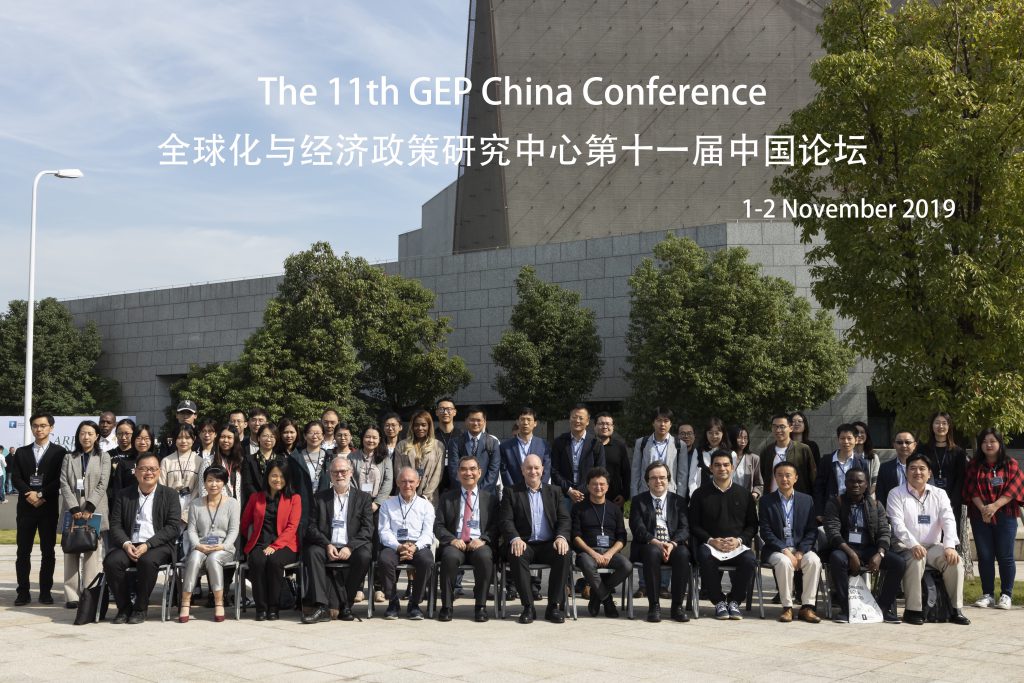
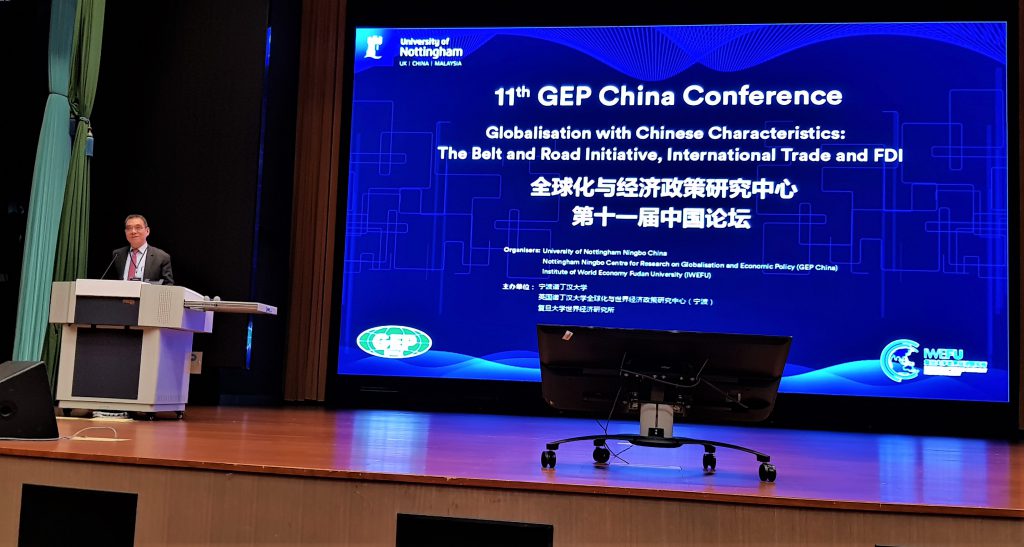
Justin Yifu Lin during his keynote lecture.
Zimmermann and Minghai Zhou
Ends;

